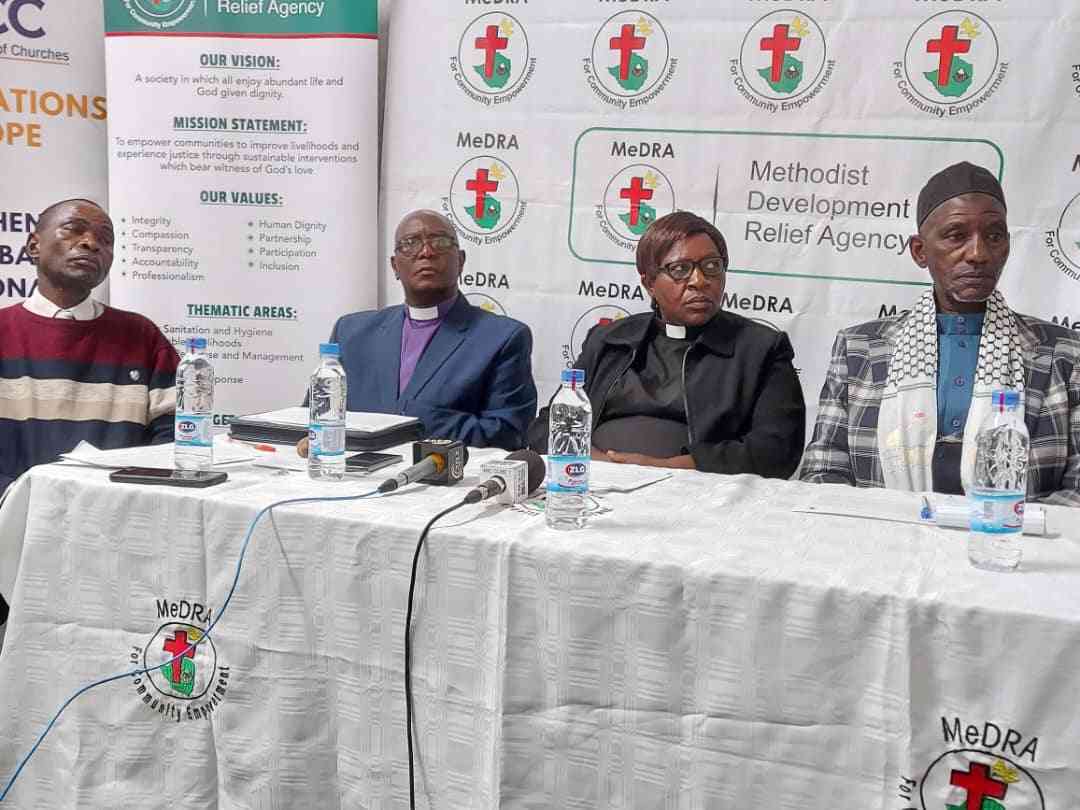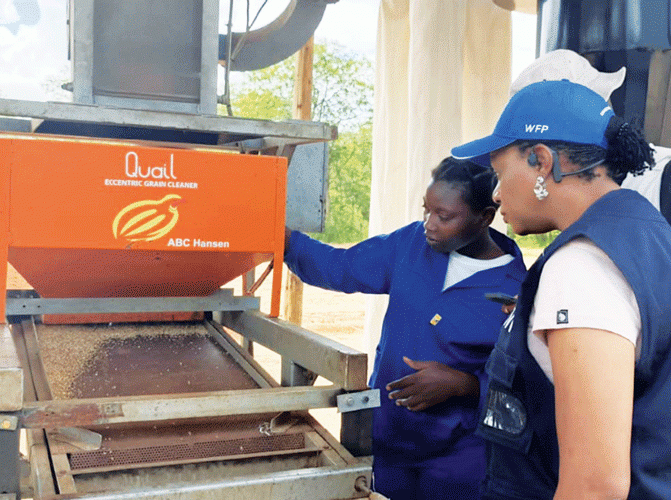
FAITH leaders have sounded the alarm against extreme and erratic climate conditions in local communities challenging the government to take meaningful action in response to the crisis.
Speaking at a recent Press conference convened by the Methodist Development and Relief Agency (MeDRA), multi-faith leaders said climate change poses significant challenges to the country.
Zimbabwe is prone to changes in temperature and rainfall with extreme events such as droughts, heat waves, heavy rains accompanied by flash floods, strong winds and hailstorms becoming widespread.
This year, Zimbabwe is facing the impact of a strong El Nino-induced drought, which has caused above-average temperatures and below-average rainfall, with a “historic” mid-season dry spell.
According to the Zimbabwe Livelihoods Assessment Committee, about six million people in rural areas and 1,7 million in urban areas require assistance.
It is against such a background that multi-faith leaders have joined forces and called on the government to take decisive action to combat climate change.
“We recognise that the country is grappling with the devastating effects of climate change, which is affecting the social and economic aspects of Zimbabweans and has robbed the citizenry of lives and livelihoods,” multi-faith leaders said in a joint statement.
“As faith leaders we recognise the fact that in as much as we preach of a world to come, God gave us authority to steward the earth and all that is in it and it is in this vein that we, therefore, urge the government, civil society organisations and the international community to work collaboratively to implement sustainable and effective climate action that will halt the current trajectory towards the decimation of Mother Earth.”
- Faith leaders sound alarm over climate crisis
Keep Reading
The faith leaders said there was an urgent need for communities to adapt to climate change including taking steps to adjust to current or expected future climatic conditions to minimise negative impacts, take advantage of opportunities, and cope with the consequences of climate change.
They said the 2024 national budget had failed to meet the Maputo declaration commitment of 10% allocation to the Agricultural Ministry.
“This undermines the need for increased investment in climate change adaptation efforts, including financial support for agricultural practices that enable adaptation to climate variations,” the faith leaders said.
“Despite the recognised threat of climate change, budgetary allocations for such initiatives may not adequately reflect the situation's urgency.
“The ministries of Finance and Agriculture need to work together to channel financial resources into initiatives supporting climate-resilient agriculture. This requires close collaboration to align agricultural development plans with climate change adaptation strategies.”
The religious leaders called on government ministries including the Environment, Climate and Wildlife ministry to lead the capacity building of State institutions to ensure that they have the expertise and understanding to integrate climate change adaptation into agricultural policies and practice.
“We call for the Ministry of Finance and Economic Development, in particular, to support training programmes and knowledge sharing on budgeting for climate resilience,” read the statement.
Supreme Council of Islamic Affairs in Zimbabwe president Sheikh Ishmail Duwa called for the acceleration of protection of the Earth and how people could live in harmony with nature.
“Our obligation as Muslims is part of our prayer and this issue about protecting the environment is contained in the Koran,” he said.
Sheikh Duwa believes mosque-based climate action was the best considering that the Muslim population in Zimbabwe is 1,5 million with 1 328 mosques across the country.
Zimbabwe Council of Churches representative Reverend Charles Muvirimi Chiweshe said if people do not adhere to the call for action, the environment would fight back.
MeDRA national director Kudzaiishe Ndawana said the multi-faith climate change adaptation call for action was meant to strengthen faith leaders’ engagement in adaptation advocacy with the aim of advancing strategic and technically sound influencing approaches and messaging.
The project is being funded by Act Alliance, a global faith-based coalition organised in national and regional forums operating in more than 120 countries.
MeDRA is a Christian-based local non-governmental organisation run by the Methodist Church in Zimbabwe.











